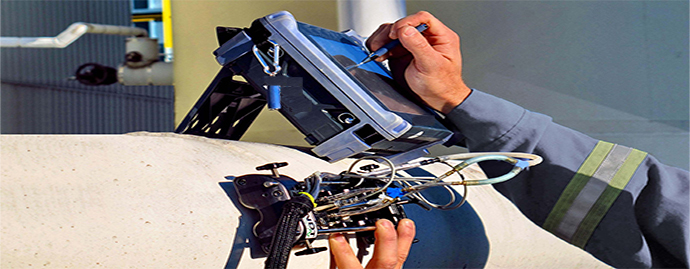| تاريخ البداية | تاريخ النهاية | الدولة | المدينة |
|---|

 +۹٦٦ ۹۲۰۰۰۷۷۷۱
+۹٦٦ ۹۲۰۰۰۷۷۷۱

الأهداف
- The objective of the course is to present an overview of Leak Testing methods, identifying the advantages and limitations of this as compared to other methods of Non-destructive Testing.
الخطوط العريضة
Leak testing fundamentals
- Reasons for leak testing
- Functions of leak testing
- Terminology
- Leak testing units
- Leak conductance
Leak testing standards
- Leak standards
- NationalInstituteofStandardsand Technology (NIST) traceability and calibration
- Instrument calibration versus test qualification
- System calibration techniques
- Inaccuracy of calibration
- Tracer-gas leak rate/air-equivalent leak rate
Leak testing safety
- Safety considerations
- Safety precautions
- Pressure precautions
- Tracer gas safety and monitoring
- Safety devices
- Cleaning and electrical hazards
- Safe work practices
- Safety regulations
Leak testing procedure
- Basic categories and techniques
- Leak location versus leakage measurement
- Pressurization or evacuation
- Sealed units with or without tracer gas
- Units inaccessible from one or both sides
- System at, above, or below atmospheric pressure
Leak testing specifications:
- Design versus working conditions
- Pressure and temperature control
- Types of leak testing methods
- Sensitivity of leak testing needed
- Test method and sensitivity needed
- Preparation of a leak testing specification
Detector/instrument performance factors:
- Design and use
- Accuracy and precision
- Linearity (straight/logarithmic scale)
- Calibration and frequency
- Response and recovery time
Physical Principles in Leak Testing:
1.1 Physical quantities
- Fundamental units
- Volume and pressure
- Time and temperature
- Absolute values
- Standard versus atmospheric conditions
- Leakage rates
1.2 Structure of matter
- Atomic theory
- Ionization and ion pairs
- States of matter
- Molecular structure
- Diatomic and monatomic molecules
- Molecular weight
1.3 Gas principles and laws
- Brownian movement
- Mean free path
- Pressure and temperature effects on gases
- Pascal’s law of pressure
- Charles’ and Boyle’s gas laws
- Ideal gas law
- Dalton’s law of partial pressure
- Vapor pressure and effects in vacuum
1.4 Gas properties
- Kinetic theory of gases
- Graham law of diffusion
- Stratification
- Avogadro’s principle
- Gas law relationship
- General ideal gas law
- Gas mixture and concentration
- Gas velocity, density and viscosity
Principles of Gas Flow
1.5 Standard leaks
- Capillary
- Permeation
1.6 Modes of gas flow
- Molecular and viscous
- Transitional
- Laminar, turbulent, sonic
1.7 Factors affecting gas flow
1.8 Geometry of leakage path
- Mean free flow of fluid
- Clogging and check valve effects
- Irregular aperture size
- Leak rate versus cross section of flow
- Temperature and atmospheric conditions
- Velocity gradient versus viscosity
- Reynolds number versus Knudsen number
من ينبغى أن يحضر
- The course is designed for anyone who is interested in satisfying the classroom training requirements for Leak Testing Level II certifications or who needs a thorough knowledge and practical experience of Leak Testing Methods.
المدة
5 أيام










